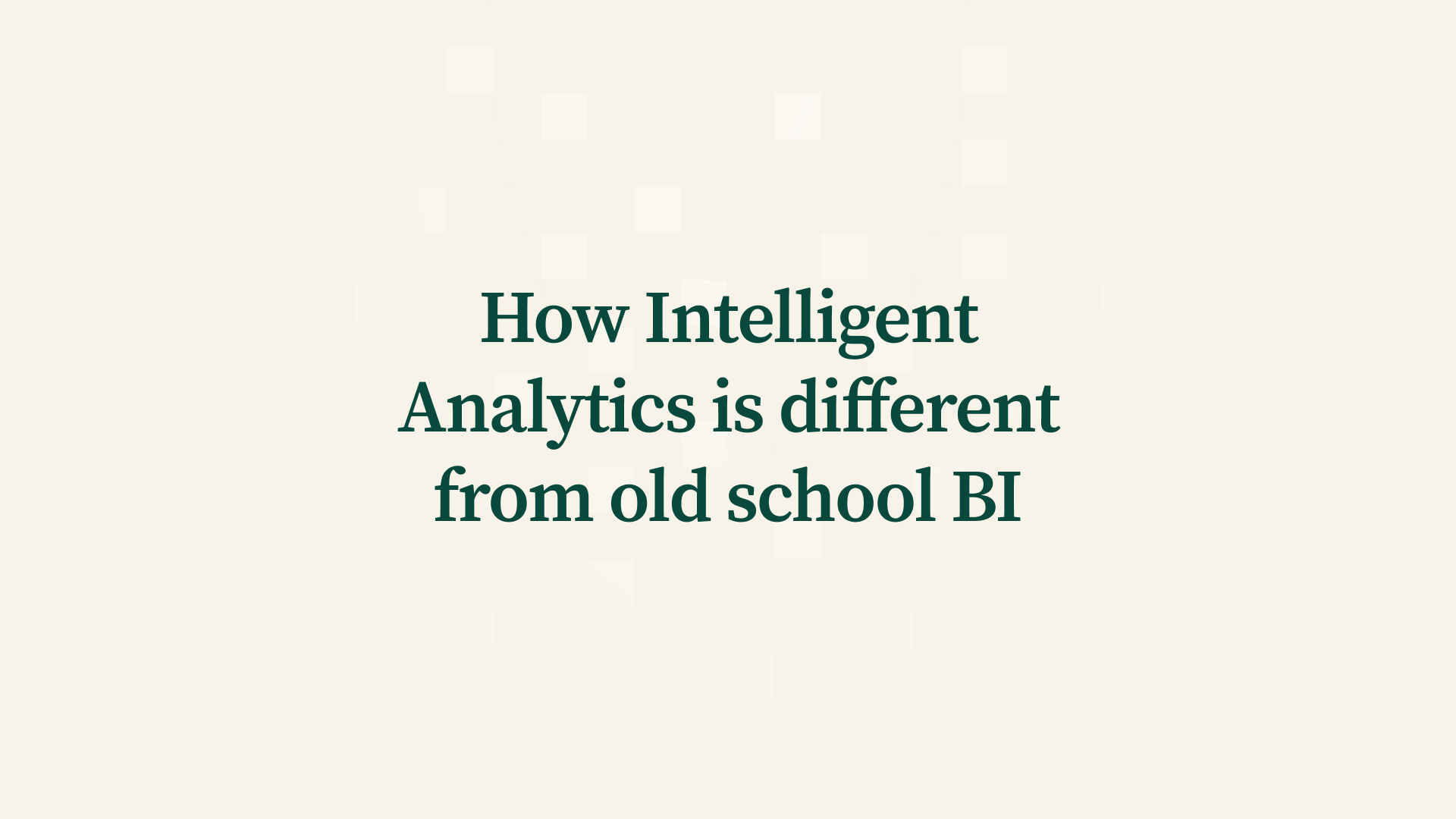How Intelligent Analytics is different from old school BI
Intelligent analytics is a radical leap beyond legacy BI. Instead of isolated queries and rigid dashboards, modern analytics platforms deliver trusted, deep insights via natural language, unified datasets, and AI-driven context. Zenlytic’s platform blends trust, depth, and the concept of an AI data coworker, enabling business users (not just analysts) to ask “why” and “what if” across campaigns, data sets, and business scenarios. With intelligent analytics, you don’t just see what happened you understand what’s actually going on and what to do next.


What Is Intelligent Analytics?
Intelligent Analytics, powered by AI, is the next evolution of how people interact with data. It transforms business intelligence from static dashboards into dynamic, context-aware, proactive insights guided by an AI data coworker.
Unlike traditional BI, which is limited to charts and dashboards, Intelligent Analytics leverages automation, memory, and natural language interaction to provide trusted, explainable, and in-depth analytics accessible to everyone.
Intelligent Analytics Synthesizes Results Across Data Sets
Traditional BI tools can only handle individual queries, resulting in siloed and isolated data. Running multiple queries for marketing spend, revenue, or customer data often means downloading the results into Excel and manually merging them.
Intelligent Analytics changes that. It automatically summarizes and synthesizes insights across multiple datasets, even when they can’t be joined directly. Whether you’re combining warehouse data with a CSV upload or blending different data sources, Intelligent Analytics pulls it all together for a single, straightforward answer.
Example: Instead of juggling dashboards for revenue and campaign performance, Intelligent Analytics combines both instantly — showing you how spend is impacting conversions in real time.
Context-Aware Analytics That Learn Over Time
Old-school BI tools forget everything you do. They don’t remember your filters, preferences, or how your business defines metrics.
Intelligent Analytics is different — it’s context-aware. It remembers your:
- Frequently used data fields and metrics
- Team-specific terminology and acronyms
- Fiscal year start dates and custom definitions
This memory builds consistency and trust. Instead of re-creating the same filters or redefining KPIs, your AI coworker knows how your business thinks — delivering analytics that feel personal, not generic.
Proactive, AI-Powered Insights, Not Just Dashboards
With traditional BI, every step is manual. You pick dimensions, set filters, and hope the visualization makes sense.
Intelligent Analytics is proactive. Just ask:
“Build me a dashboard on marketing spend and conversion performance.”
The AI instantly drafts a comprehensive analysis, highlighting trends, diagnosing anomalies, and surfacing recommendations. You can then iterate conversationally, refining the insights in seconds.
Because Intelligent Analytics is powered by advanced LLMs (like Claude 3.7), it can go beyond simple aggregations, answering complex analytical questions that once required SQL or Excel exports.
Intelligent Analytics Is the Future of BI
The shift from traditional BI to Intelligent Analytics isn’t incremental; it’s transformative.
By combining AI intelligence, data governance, and explainability, Intelligent Analytics empowers everyone, from analysts to executives, to make confident, data-driven decisions. It’s not just about faster answers; it’s about deeper insights that solve real business problems.
With Zenlytic, Intelligent Analytics becomes your AI data coworker, one that remembers, explains, and evolves with your business.


